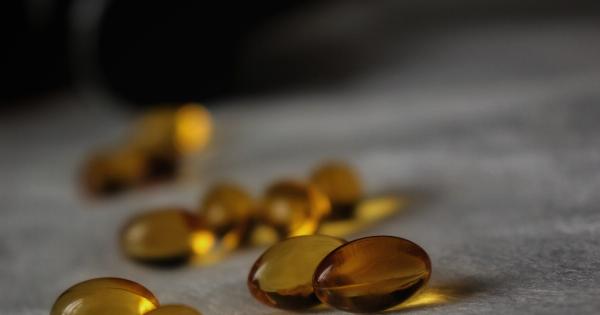Headaches are a common ailment that affects millions of people worldwide. From tension headaches to migraines, headaches can be debilitating and significantly affect daily life.
While medication can provide temporary relief, many people overlook the importance of nutrition in preventing and reducing headaches. Specifically, there are key vitamins that should be included in a balanced diet to promote headache relief.
Vitamin B2
Also known as riboflavin, vitamin B2 is an essential vitamin that plays a key role in reducing the frequency and severity of migraines. A deficiency in this vitamin has been linked to an increased risk of headaches and migraines.
Studies have shown that high doses of vitamin B2 can reduce the frequency of migraines by up to 50%. This vitamin can be found in a variety of foods such as almonds, milk, spinach, and eggs.
Magnesium
Magnesium is an essential mineral that plays a key role in many bodily functions, including muscle and nerve function, regulating blood pressure, and supporting a healthy immune system.
A deficiency in magnesium has been linked to an increased risk of headaches and migraines. Studies have shown that supplementing with magnesium can help reduce the frequency and severity of migraines. This mineral can be found in foods such as dark chocolate, almonds, avocado, and spinach.
Vitamin D
Vitamin D is an essential vitamin that helps the body absorb calcium and promotes strong bones. However, research has also shown that a deficiency in vitamin D may increase the risk of headaches and migraines.
Studies have shown that supplementing with vitamin D can help improve headache symptoms. This vitamin can be found in fatty fish, egg yolks, and fortified foods such as milk and cereal.
Vitamin E
Vitamin E is a powerful antioxidant that plays a key role in protecting cells from damage and promoting a healthy immune system. Research has also shown that a deficiency in vitamin E may increase the risk of headaches.
Studies have shown that supplementing with vitamin E can help reduce the frequency and severity of headaches. This vitamin can be found in foods such as almonds, spinach, and sunflower seeds.
Vitamin C
Vitamin C is a powerful antioxidant that supports immune function and helps the body absorb iron. Research has also shown that vitamin C may help reduce the risk of headaches, especially tension headaches.
This vitamin can be found in a variety of fruits and vegetables, including oranges, strawberries, bell peppers, and broccoli.
Vitamin B6
Vitamin B6 is an essential vitamin that supports brain function, helps the body make serotonin and norepinephrine, and helps regulate blood sugar levels. Research has also shown that a deficiency in vitamin B6 may increase the risk of headaches.
Studies have shown that supplementing with vitamin B6 can help reduce the frequency and severity of migraines. This vitamin can be found in foods such as salmon, bananas, chickpeas, and potatoes.
Zinc
Zinc is a mineral that plays a key role in immune function, wound healing, and DNA synthesis. Research has also shown that a deficiency in zinc may increase the risk of headaches and migraines.
Studies have shown that supplementing with zinc can help reduce the frequency and severity of migraines. This mineral can be found in foods such as oysters, beef, pumpkin seeds, and lentils.
Vitamin B12
Vitamin B12 is an essential vitamin that plays a key role in nervous system function, red blood cell production, and DNA synthesis. Research has also shown that a deficiency in vitamin B12 may increase the risk of headaches and migraines.
Studies have shown that supplementing with vitamin B12 can help reduce the frequency and severity of migraines. This vitamin can be found in foods such as salmon, beef, and dairy products.
Iron
Iron is an essential mineral that helps the body produce hemoglobin, which carries oxygen to the body’s tissues. Research has also shown that a deficiency in iron may increase the risk of headaches, especially in women.
Studies have shown that supplementing with iron can help reduce the frequency and severity of headaches. This mineral can be found in foods such as red meat, spinach, and lentils.
Omega-3 Fatty Acids
Omega-3 fatty acids are essential fatty acids that play a key role in brain function, reducing inflammation, and supporting heart health. Research has also shown that omega-3 fatty acids may help reduce the frequency and severity of migraines.
These fatty acids can be found in fatty fish such as salmon, walnuts, and flax seeds.
Conclusion
Nutrition plays a key role in promoting headache relief, and including these key vitamins and minerals in your diet can help reduce the frequency and severity of headaches and migraines.
If you’re experiencing chronic headaches or migraines, it’s important to speak with your healthcare provider to ensure there aren’t any underlying medical conditions contributing to your symptoms. However, incorporating these key vitamins and minerals into your diet can be an easy and effective way to promote headache relief.































